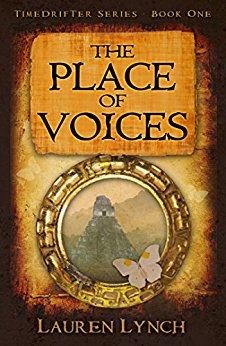
C.J. Brightley gives me a certain amount of credit for noticing, and drawing attention to, the phenomenon we’re now calling “noblebright fantasy” – the deliberate opposite of grimdark. Accordingly, I thought I’d write a few words about one of the earliest places I encountered it: the works of the late Sir Terry Pratchett.
Pratchett may seem an unlikely inspiration for noblebright fantasy, at first look, but as a long-time fan of his work, I’ve noticed a profound moral foundation and firm sense of hope underlying the satire and the silly names.
Even though his books are thought of as comedies, Pratchett’s Discworld is not necessarily a happy place. There are wars, tyrants, criminals and murderers. There are vampires, werewolves and religious fanatics. People suffer profound losses and make terrible decisions. All of this is entirely compatible with being noblebright.
Noblebright isn’t about the world being nice and free from conflict. In fact, the grimness and darkness of the world is almost necessary for the sake of contrast. It reminds me of Shakespeare’s wonderful phrase about a candle in the darkness shining “like a good deed in a naughty world” (“naughty” being a much stronger word in Shakespeare’s day than it has since become). Because what noblebright fantasy does is show us one or more people of good will and noble heart, taking on the evil of the world in the hope that they can make a difference.
It’s not difficult to think of examples. Perhaps one of the easiest is Captain Carrot Ironfoundersson, lost heir to the throne of Ankh-Morepork, but content to serve as a humble city guard. His upbringing among the dwarves has taught him to be hard-working and dutiful, but his kindness and his willingness to sacrifice what he himself cares about for the sake of others are all his own. In the book Men at Arms, he sums this up in a phrase: “Personal isn’t the same as important.”
That’s a phrase that another Pratchett character also uses, in Lords and Ladies, and she’s a bit less immediately recognisable as a noblebright character. Granny Weatherwax is a witch, a crotchety old woman who’s more feared than loved in her remote mountain community. But the people who know her well, particularly her great friend and constant arguing partner Nanny Ogg, know that, powerful as she is, she has to have an even more powerful sense of personal ethics to keep from going “dark” and cackling.
Both Carrot and Granny keep themselves from giving into the temptations of power by deliberately serving others in humble ways. Carrot, mourning the possible loss of his beloved, sweeps the floor of the guardhouse. There’s a rota, and it’s his turn. Granny, at one point, tells another character that you can’t help people with magic, but you can help them with “skin” – by being there when they need someone to do the hard, dirty, gutwrenching jobs that carry no glamour, but must be done if the world is to keep on working even as well as it does. There are moments of great confrontation with mighty powers in the Discworld books, yes, but there are also many moments of simple, everyday heroism, in which people quietly get on with doing things that won’t make them famous or admired, but are entirely necessary for the good of the world.
This is one of the things that sets them apart from the villains. Pratchett’s heroes will give up what they want and bear a personal cost, and personal risk, in order to do what they know is right and to save or help people around them. Villains – and this is my working definition of a villain – will instead make other people pay the cost of the things that they want for themselves. This is why the ruler of Ankh-Morepork, Lord Vetinari, is closer to a hero than a villain, despite being a ruthlessly pragmatic and famously tyrannical ruler. He isn’t doing it for glory, or so that he can live luxuriously (he lives a very simple, almost Spartan lifestyle), or even to advance his family (he has an elderly aunt and a little dog); he’s doing it to make the city work for everyone.
There’s often a moment in a Pratchett book when the hero is faced with a choice between the easy thing that will benefit him or her, and the hard thing that is the right thing to do and will benefit other people. Because Pratchett’s best characters are flawed, the temptation is real. But because they are flawed, and know they are flawed, and hate that they are flawed, and struggle (and know they will always have to struggle) against their flaws, they’ve had practice in choosing the right thing even when it’s hard.
Samuel Vimes is perhaps the clearest example after Granny Weatherwax herself: we meet him as the alcoholic captain of the city guard, worn down and hopeless on the gritty streets of Ankh-Morepork, where thieves and murderers are licensed by the city and the Guard keep their head down and hope they make it to retirement. But then he has the opportunity to make a difference, and meets someone who believes in him, and this starts him on the arc to being the great man of the later books – a man who will leave important civic duties to go and read a story to his little son, because that’s important too, and will fight anyone and anything who tries to stop him.
This, then, is noblebright. A dark, grim world as a backdrop, but in the foreground, people who know their flaws and engage them in daily battle, who care about small things done humbly for small people, and who will fight and sacrifice and risk their lives on behalf of others for what they know is right, in the hope of making a better, kinder world.
This is a guest post by Mike Reeves-McMillan. Mike writes the Gryphon Clerks novels, a series featuring heroic civil servants and engineers doing their best in a difficult world; the Auckland Allies contemporary urban fantasy series, about underpowered magical practitioners stepping up to defend their city when nobody else will; and the Hand of the Trickster sword-and-sorcery series, in which a servant of the trickster god exalts the humble and humbles the exalted. His short stories have appeared in a number of professional and semiprofessional venues, including the Terry Pratchett tribute anthology In Memory.




One thought on “Finding Noblebright in the Works of Terry Pratchett”
*applause*